
Published by Published CathCom Ltd, N2 Blois Meadow Business Centre, Steeple Bumpstead, Haverhill, Suffolk, CB9



Published by Published CathCom Ltd, N2 Blois Meadow Business Centre, Steeple Bumpstead, Haverhill, Suffolk, CB9

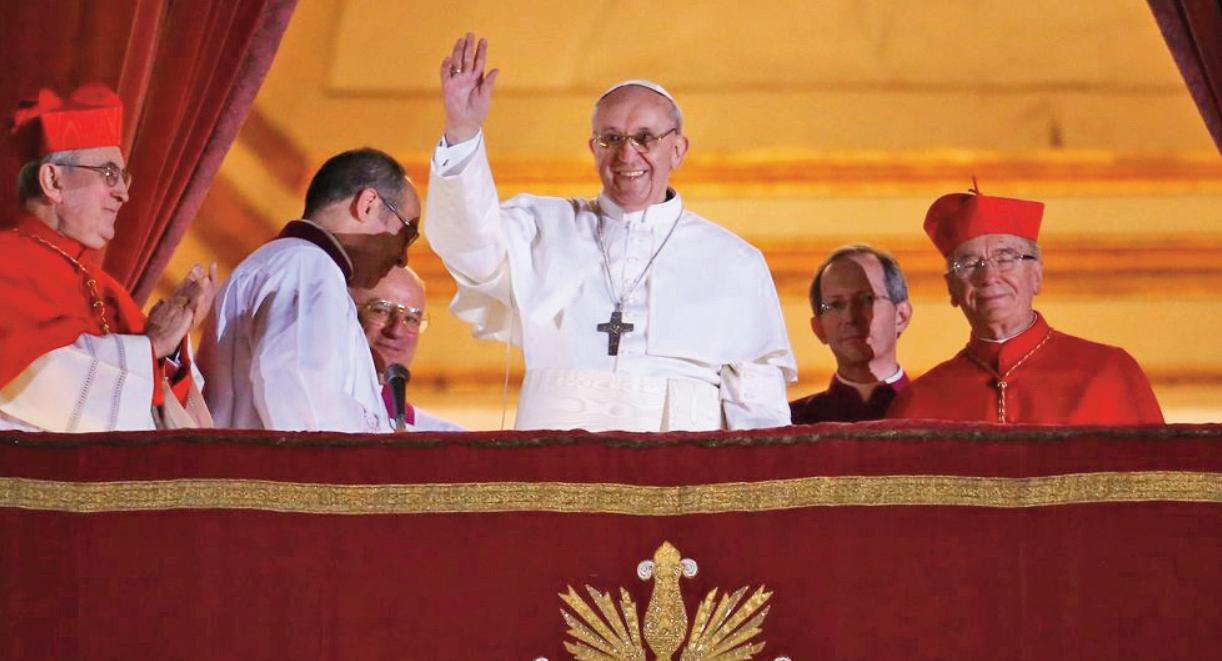
Pope Francis, born Jorge Mario Bergoglio on December 17, 1936, in Buenos Aires, Argentina, rose from modest beginnings to become one of the most transformative and beloved leaders in the modern Catholic Church. As the first pope from the Americas, the first Jesuit pope, and the first non-European to hold the papacy in over 1,200 years, his life and legacy are marked by humility, compassion, and a fearless dedication to justice.
Humble Beginnings in Argentina
The son of Italian immigrants, Francis was raised in a working-class neighbourhood of Buenos Aires. His father worked on the railways, and his mother was a homemaker. Jorge grew up with four siblings, absorbing the values of hard work, faith, and modesty that would define his later life.
Before entering the priesthood, he studied chemistry and worked briefly as a chemical technician. His religious calling came in his early 20s, when he joined the Society of Jesus (the Jesuits), a Catholic religious order known for intellectual discipline, education, and missionary outreach. He officially entered the Jesuits in 1958 and was ordained a priest in 1969.
Bergoglio served as Provincial Superior of the Jesuits in Argentina from 1973 to 1979, a period that overlapped with the nation’s brutal military dictatorship known as the Dirty War. This era saw widespread human rights abuses, including the forced disappearances of political dissidents. His role during this time has been both praised and questioned—while some critics
accused him of not doing enough to oppose the regime, others revealed that he secretly worked to protect and rescue those at risk, including hiding individuals from military forces.
His quiet resistance reflected a personal approach to leadership: low-profile but deeply committed to moral action.
Rising Through the Church Hierarchy
In 1992, Bergoglio was appointed Auxiliary Bishop of Buenos Aires. He became Archbishop in 1998 and was named a cardinal by Pope John Paul II in 2001. As Archbishop, he gained a reputation for living simply—he shunned the luxurious bishop’s residence in favour of a small apartment, cooked his own meals, and regularly used public transportation.
Bergoglio’s focus on social justice, poverty, and community engagement made him a spiritual figure beloved by many Argentinians. He was known to walk the streets, listen to his flock, and work handson with the city’s poorest residents.
The Papal Election and a Historic Choice
Following the unexpected resignation of Pope Benedict XVI in 2013, the papal conclave elected Cardinal Bergoglio as the 266th pope on March 13, 2013. He chose the name Francis, inspired by St. Francis of Assisi—a decision that signaled a papacy centred on humility, peace, and care for the poor and the planet. Continued

Editor: Nick Layton
Editorial Office: CathCom Ltd, N2 Blois Meadow Business Centre, Steeple Bumpstead, Haverhill, Suffolk, CB9 7BN
Telephone: 01440 730399
email: cn@cathcom.org or davidl@cathcom.org
Website: www.cathcom.org
Distribution enquiries: cn@cathcom.org
CathCom Ltd,
Publication date: Fourth Sunday of the month for the following month. Opinions expressed by contributors are not necessarily those of the Editor or the Diocese.
Publishers and Owners: CathCom Ltd, N2 Blois Meadow Business Centre, Steeple Bumpstead, Haverhill, Suffolk, CB9 7BN
Advertising: tel: 01440 730399
Parental permission should be sought before submitting photographs of minors.
Views expressed in The Catholic News are not necessarily those of the editor.
The Catholic News is looking for a Parish Correspondent in your parish to send in local news for publication in this newspaper. All items to be emailed to cn@cathcom.org before 10th of the month
Continued from page 1
Pope Francis immediately set himself apart from his predecessors. He declined many traditional papal luxuries, lived in the Vatican guesthouse instead of the papal palace, and chose simpler vestments. His down-to-earth demeanour, quick wit, and open-hearted approach captivated Catholics and non-Catholics alike.
Throughout his papacy, Pope Francis became a powerful voice on global issues. He advocated for urgent action on climate change in his groundbreaking encyclical Laudato si’, promoted interfaith dialogue, and emphasised the need for mercy in dealing with controversial topics such as divorce, homosexuality, and abortion.
His famous quote —“Who am I to judge?”— in response to a question about gay priests, symbolised a major shift in the Church's tone, moving away from condemnation toward compassion and inclusion.
Francis also prioritised reform within the Vatican, pushing for transparency, accountability, and a more decentralised Church structure. He met with victims of clergy sexual abuse, acknowledged institutional failures, and called for systemic change.
In his later years, Pope Francis faced health challenges but continued to travel, preach, and engage in global diplomacy. He visited war zones, refugee camps, and conflict-ridden countries, always preaching unity, peace, and love for the marginalised.
On April 21, 2025, Pope Francis passed away at the age of 88. His death triggered


a wave of mourning across the world. Leaders of all faiths and nations paid tribute to a pope who had transcended religious boundaries to become a global moral leader.
Pope Francis left behind a Church more open, more humble, and more aligned with the struggles of everyday people. His legacy
The Catholic News. May 2025.
endures in his calls for compassion over condemnation, action over apathy, and simplicity over grandeur.
He was a shepherd of the people—a pope who walked with the poor, spoke for the voiceless, and lived out the Gospel in every step.
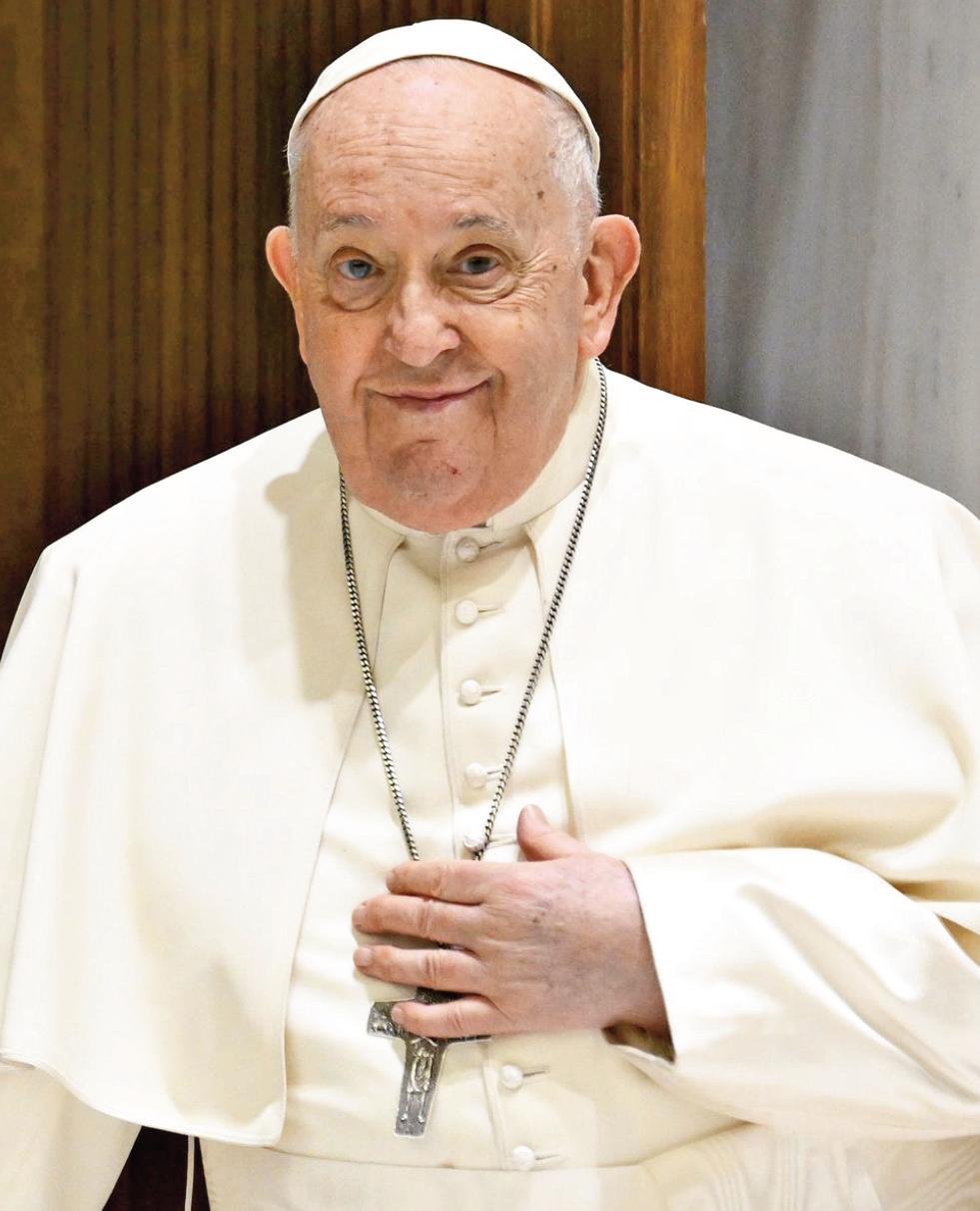
By Frank Goulding








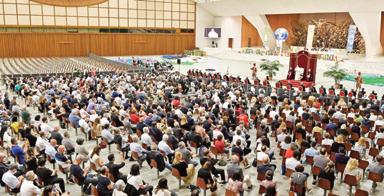


Catholic













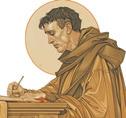



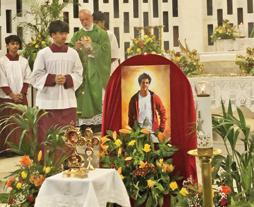


For a long time we have witnessed appeals asking to support those in greatest need. In Britain the Trussel Trust ensured that every MP received the fullest information on poverty across the UK in recent months.
Some £1.6 million was raised to the Trust’s Winter Appeal to help food banks. 15.4 million emergency meals worth of food was donated through supermarkets in 2024. Despite living in a country of comparative affluence there appears to be little chance of these statistics falling. The Trust team continues to tell its supporters that it will campaign for a more just, compassionate society where no one needs emergency food.
In late march the former British colony now named Myanmar was hit by a
massive earthquake, we knew that this would be catastrophic and the death toll inevitably would be high. We may well have strong views on the inner politics of Myanmar but as the DEC appeal pleaded many survivors would be injured needing water, food and medical care. Let us hope and pray that aid is permitted to get to those in greatest need.
A few days later after the tragedy in southeast Asia the American President made an announcement on US tariffs. This sparked off speculation on the prospect of a global recession. At the White House we heard much about “America first” but very little of its potential impact on the poorest countries. As stock markets went into turmoil we could only wonder about targets of 50 per cent for Lesotho and Madagascar
To those generous people who support the most needy causes some will clearly want to look at their own finances particularly if they are caring for a loved one. April saw large increases in household costs and the fear of unemployment. Yes a common comment that “charity begins at home” may be familiar but let us not forget the kindness of so many good people who look to the Gospel’s and then find they can be more in touch with God and then the difficult world in which we live.
This article was written before the American President paused the international tariffs.
Pope Francis called upon his flock to actively engage in political life and help combat indifference, which he described as ‘a cancer of democracy’. Over the years of his papacy, he repeatedly spoke of the need for a politics of love and hope and of how, as Catholics and Christians, we cannot be satisfied with a private faith, but need to witness to a ‘better’ politics, seeking, uniting and collaborating for the transformation of our communities, passionate about the common good.
With the window of opportunity closing for citizens to exercise their democratic rights and express their views on assisted suicide to their local MP, the Lincoln branch of the Society for the Protection of the Unborn Child, led by a parishioner of St Peter & St Paul Catholic Church, exercised the freedom to air a point of view (one held by the Catholic Church and Pope Francis, who has said physician assisted suicide offers false compassion) and invited people, through church newsletters, to take part in a silent roadside vigil, in Lincoln, on
Saturday March 22nd, in order to raise and refresh public awareness of the Terminally Ill Adults (End of Life) Bill going through British parliament.
People, of various Christian denominations and sections of society, came together, on the day, to bear peaceful witness to their local community; each person, taking up, in this small way, their Christian responsibility as part of a society trying to discern a particular course of action, in this case, whether or not assisted suicide should be made available to members who are terminally ill. Whilst the effects of the vigil are known only to God, with one car passenger admitting they were not aware of the Bill and discovering the truth because of the roadside witness, the vigil did, at the very least, serve the purpose of raising public awareness.
Depending on the date of the Third Reading and final vote in the House of Commons (after which, if passed, it would undergo consideration by the House of Lords), there
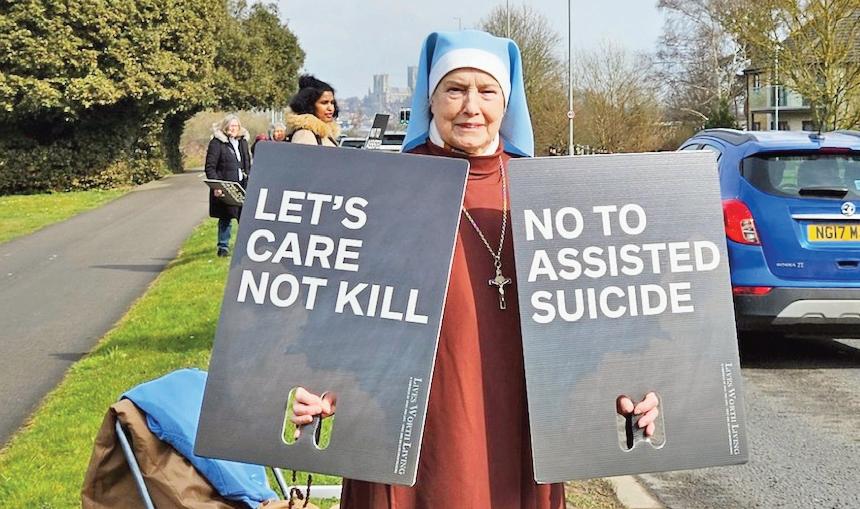
may still be time to contact MPs. Whether there is or not, for a Christian, it is never too late to pray and in 2021, when a similar Bill went through parliament (and failed), the Catholic Bishops’ Conference of England and Wales published a novena to Pope Saint John Paul II to promote a culture of life and defeat the Bill.

Praying the Stations of the Cross in churches became popular in the late sixteen hundreds/early seventeen hundreds, after it became difficult to make a pilgrimage to the Holy Land, enabling Catholics to still ‘walk’ the road to Calvary with Jesus. It is a popular devotion, especially during Lent.
Holy Week, in particular, is a time when we recall the many ways Jesus was betrayed. Thus it is an opportune moment to think of and pray for persecuted Christians, who can live in fear of betrayal and its consequences and so a few days after there was a pilgrimage walk from Bardney Abbey to Lincoln, offered for Fr Gabriel Romanelli and the Christians in Gaza, at St Peter & St Paul Church, in Lincoln, a group gathered after evening Mass, on the eve of Spy Wednesday, to pray the Stations of the Cross for people persecuted for their faith throughout the world.
The hope was to try and gain an appreciation of the challenges persecuted Christians can have in gathering for a service. The Lord assisted in this in the run up; the posters (relating to persecution) to be used for the Stations were delivered during torrential rain and got soaked, leaving a number of them looking rather crumpled and inadequate after they dried out, then the date to hold the service was decided last minute and not wanting to use the church (given in many places of
persecution it is not an option or not safe to), the desired parish hall was unavailable, so an alternative location (the Lady chapel, which is separate to the main church) had to be employed.
On the night itself, a chair hosted a display of items relating to the betrayal of Jesus and the pews were used to fasten the posters. With all doors locked, little space to manoeuvre and lights switched off, parishioners gathered with uncertainty as to what would unfold, some with torches at the ready! In the dwindling evening light, the Stations were then prayed in silence. At the end, and reminded of the forgiveness Jesus offers, using the items in the display, we pondered and prayed about the ways we, ourselves, can and do betray Jesus.
With the Chrism Mass at St Barnabas Cathedral, Nottingham, taking place the following day, during which priests renew their priestly promises, those men called to the Ordained Priesthood who experience persecution from family and others came to mind, together with gratitude for all priests who continue their ministry in unsafe conditions. Apart from praying for victims of religious persecution and personal reflection, makeshift and make do, the service also brought home how privileged we are in the UK to have the freedom to have open access to churches with the Real Presence of Christ in the tabernacle, to have organised services,
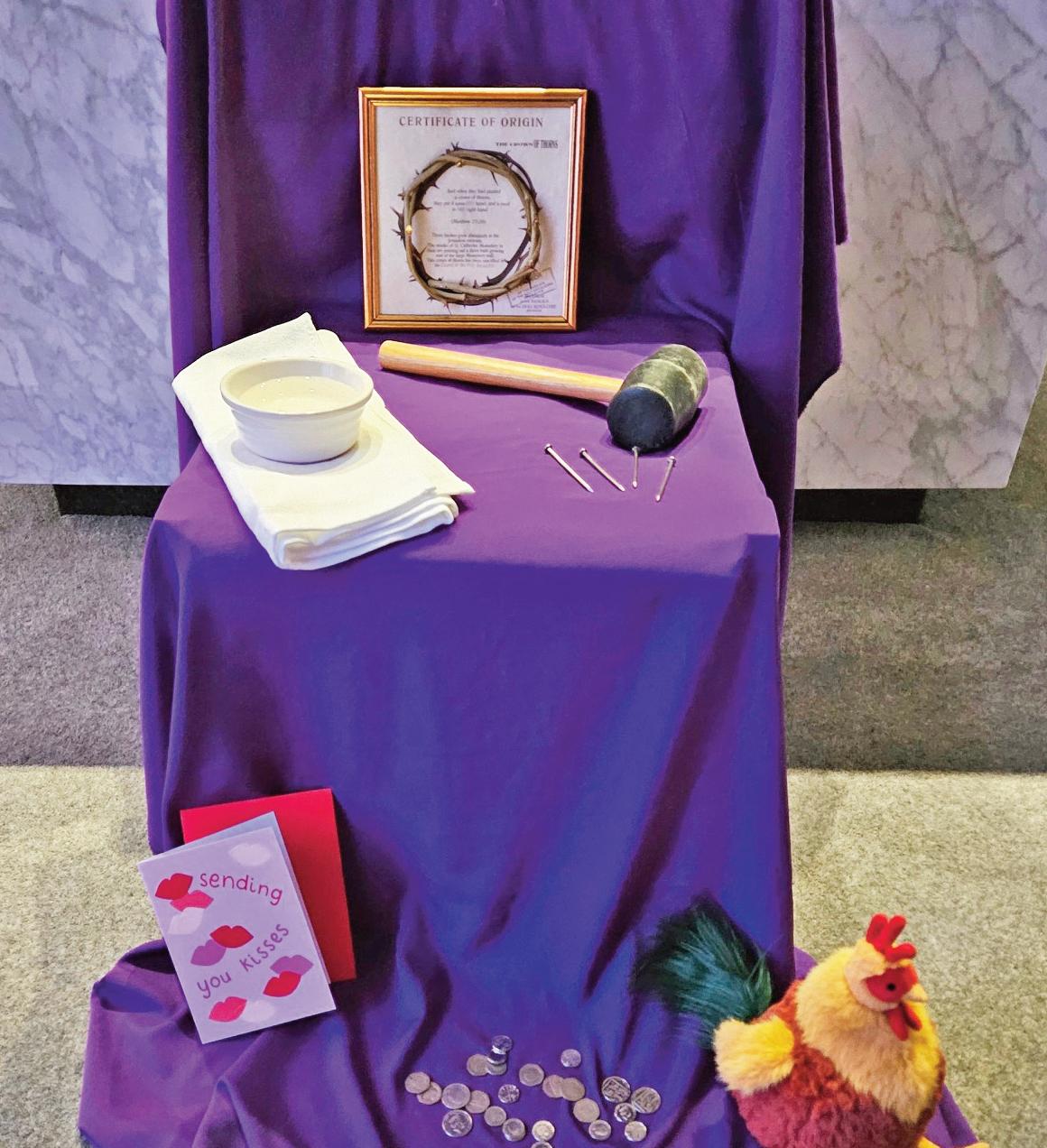
with the materials and reverence that affords, to be able to receive the Sacraments (as we did, the Eucharist, beforehand) and to come and go, to talk and act, without fear of betrayal and
reprisal. Different to how we normally come together to pray the Stations, it proved to be a thought provoking service.
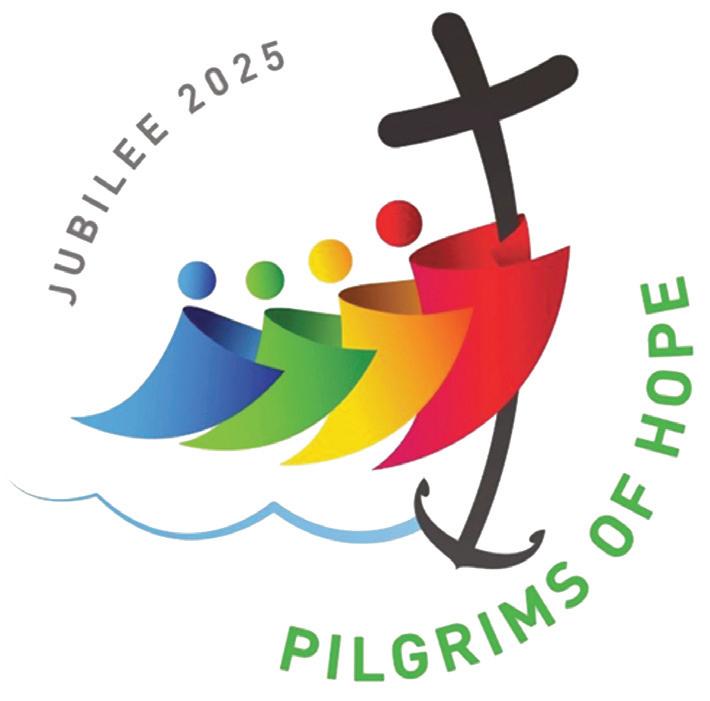
Mission Lab
Monthly inspirations for parish evangelisation and outreach
Save the dates in your diary
Mission Lab offers fresh ideas for the future of your parish. In nine online sessions starting in May 2025, we’ll showcase how parishes around Nottingham diocese are seeking to build vibrant, attractive and outward-facing Catholic communities.
Mission Lab isn’t just a ‘think tank’ for mission, but a ‘do tank’ as well – a space to discern, plan and equip ourselves to be pilgrims of hope, in the Church of today and tomorrow. We’ll:
* learn from good practice around the diocese and beyond
* develop initiatives that can be proposed in our own parishes
* grow personally in confidence, resourcefulness and leadership
* form a community of practice for parish resilience and renewal.
Sessions take place monthly on Zoom from May 2025, on Monday or Tuesday evenings. All are welcome – drop in when you can. Use the QR code to register for the series –we’ll send you a reminder of the link shortly before each session.
Register for the Mission Lab at bit.ly/missionlab2025 or scan the QR code

“Pastoral ministry in a missionary key seeks to abandon the complacent attitude that says: “We have always done it this way”. I invite everyone to be bold and creative in this task of rethinking the goals, structures, style and methods of evangelization in their respective communities.” – Pope Francis, The Joy of the Gospel (33)
Tuesday 20 May: Welcomers and welcoming
First impressions count: they can make the difference between keeping a newcomer and losing them. It’s not just first-timers who benefit from a welcoming environment
– longstanding attenders become participants, and participants become volunteers. How can we ensure everyone who comes to our parish has a welcoming experience and feels they belong?
Join us to hear how they do it at:
St Anne’s, Buxton, from Yvonne Ripley, parish council chair
The Glossop parishes, from Leadership Team members Ann King and Liz Nash
Monday 16 June: Intertwining vocations
All the baptised are anointed with gifts from the Holy Spirit. How can our parishes become communities where we not only discover our gifts and vocations, but also help others flourish in theirs?
Last year a group from three parishes embarked on ‘Called & Gifted’, a discernment process to ‘help us unlock our story, understand our gifts and discover our unique mission’. At this session we’ll meet Andrew Elliott, music and liturgy leader from Glossop parishes, and Hilari Chetwood, catechist at St Mary’s South Wigston, who will share their experience of the programme. We’ll explore SHAPE, a framework which also calls on our heart’s desires, natural abilities, personality and experience, so that we bear fruit by sharing the gifts they have been given.
Tuesday 8 July: What next after RCIA?
The Rite of Christian Initiation of Adults culminates in welcoming the candidate into the People of God. How can we ensure that completing the RCIA is not an ending, but merely the beginning of lifetime of adventure and growth in the communion of the Church? What can make our parishes places of continuous discovery and
There is a story about a man whose house was built on a hillside which had a very steep back garden. Once that spring came around he knew that he would have to mow the grass on that hill week after week. Early in the year he did not mind , but after a few months of mowing and as he became older that hill became bigger and steeper.
Then one day a neighbour told him that he had found a solution to his neighbour’s mowing problem. He told him of a little known mixture that when sprinkled on the hilly lawn would work quietly, but with incredible power to dissolve the rocks and level the hill. This mixture had the same ingredients as dynamite, but instead of instant results works over time and a lot more quietly.
The word dynamite comes from the Greek word dynamis, which means power. It’s the same word St Paul uses when he prays that we may know “the surpassing greatness of his power for us who believe, in accord with the exercise of his great might which he worked in
Christ, raising him from the dead” (Ephesians 1: 19- 20)
Often we do not feel as if we have spiritual dynamite, but God’s word says it’s true. As Christians we know that the power of Jesus’ resurrection - the power that conquers sin and death lives in us. We need to believe and trust in this power more than we trust in our own thoughts and feelings.
Just as that little known mixture works quietly and powerfully in that little storyso the power of Jesus’ resurrection tends to work quietly but forcefully in our lives. It may seem slow to us at times, but God is still working. The Holy Spirit which we received in Baptism, is committed to us and he is constantly finding ways to help change us into the image of Jesus Christ. His power is like dynamis, is constantly unfolding in us, whether we are young or old, rich or poor, healthy or ailing.
Our job is Expectant Faith ! So in this Easter season there is one thing we can do if we want to experience this power of God more fully, that is raise our expectations.
discipleship, for candidates and all their fellow parishioners?
Reg Carter, catechist at Good Shepherd, Nottingham, and Adam Lee-Morris, who recently completed the parish’s programme, will join us to map out an ongoing journey for RCIA candidates to discover.
Provisional dates and topics for the rest of the year
Tuesday 8 July: What next after RCIA?
Monday 8 September: Engaging volunteers
Tuesday 14 October: Fundraising for outreach
Monday 10 November: Global parish
Monday 12 January: Parish as synod Tuesday 10 February: Cell groups Monday 9 March: Mission Enabling Fund
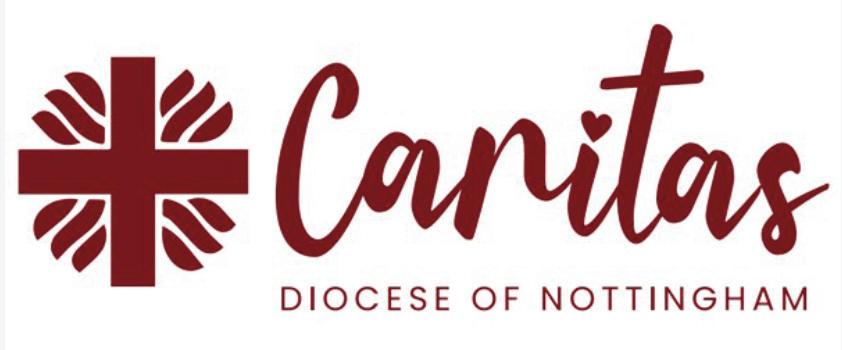
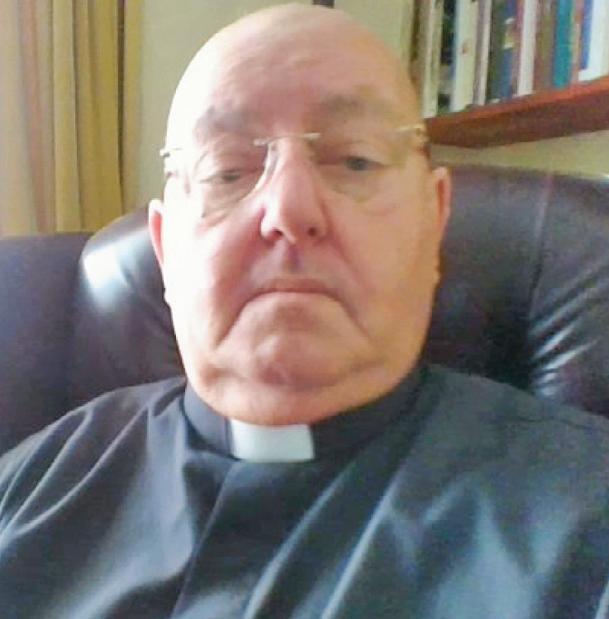
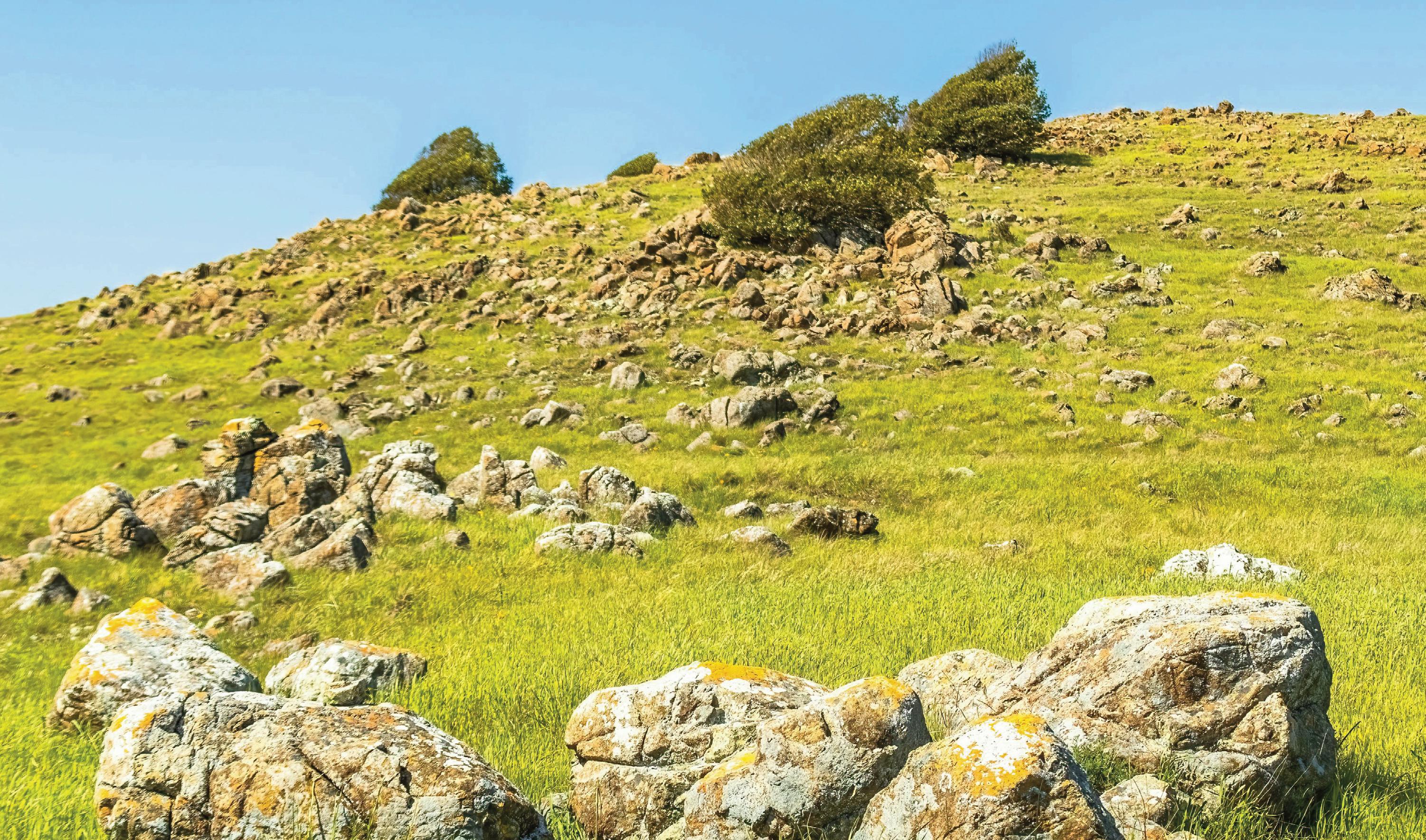
Believe that God wants to work in our lives and in the lives of those we pray for. The only thing that seemed to limit Jesus’ power when he was on earth was people’s lack of expectant faith. But when people did believe their lives were changed.
Every day let us tell the Lord, “Jesus, I give you the freedom to work powerfully in me. Change me, and transform me into your image.
Let’s give him the mountains in our lives and ask him to turn them into level ground. God may answer our prayer just as we requested or he may have a different answer. But either way there is one thing we can rely on it is that God is faithful. He will hear and answer our prayers - especially the ones we make with expectant faith.
The Mayor of Gedling, Councilor Ron McCrossen a parishioner of the Good Shepherd Community (Part of the Parish of St. John Paul II, Nottingham) and the Mayoress, Councilor Viv McCrossen hosted an afternoon tea party in support of the mayor’s charity; The Parkinsons UK, Saturday, 22nd March in the Good Shepherd Assembly Rooms.
Both the Atrium reception area, where a glass of Buck’s Fizz (and soft drinks) welcomed all including the deputy Lieutenant of Nottinghamshire, Mr. David Stewart OBE., DL., the deputy Mayor of Gedling Councilor Kyle Robinson-Payne, the local Member of Parliament Michael Payne and the Leader of Nottinghamshire County Council, Councilor Richard Butler as well as several members of Gedling Borough Council and families, and the Mayor’s Chaplain & Parish Priest of St. John Paul II, Nottingham, Canon Philipp as
well as members of the parish and local communities. Time had to be called on the ticket sales which proved a “sell out”.
An Assembly of over 130 sat down to an excellent afternoon tea of various triangle sandwiches, festive cakes and pastries and tea or coffee served at seat.
The afternoon continued almost as a tea dance under the guidance of Ron Hurley who runs the monthly Tea Dance on the first Wednesday of the month in the Marian Hall.
We salute and congratulate our Mayor, Councilor Ron McCrossen and the Mayoress Viv for their hard work in the Borough generally and for this tremendous occasion which raised over £1500 for the mayor’s charity. On May 3rd, the Mayor and Viv will exercise with a sponsored cycle ride to Skegness, again for Parkinson’s UK.
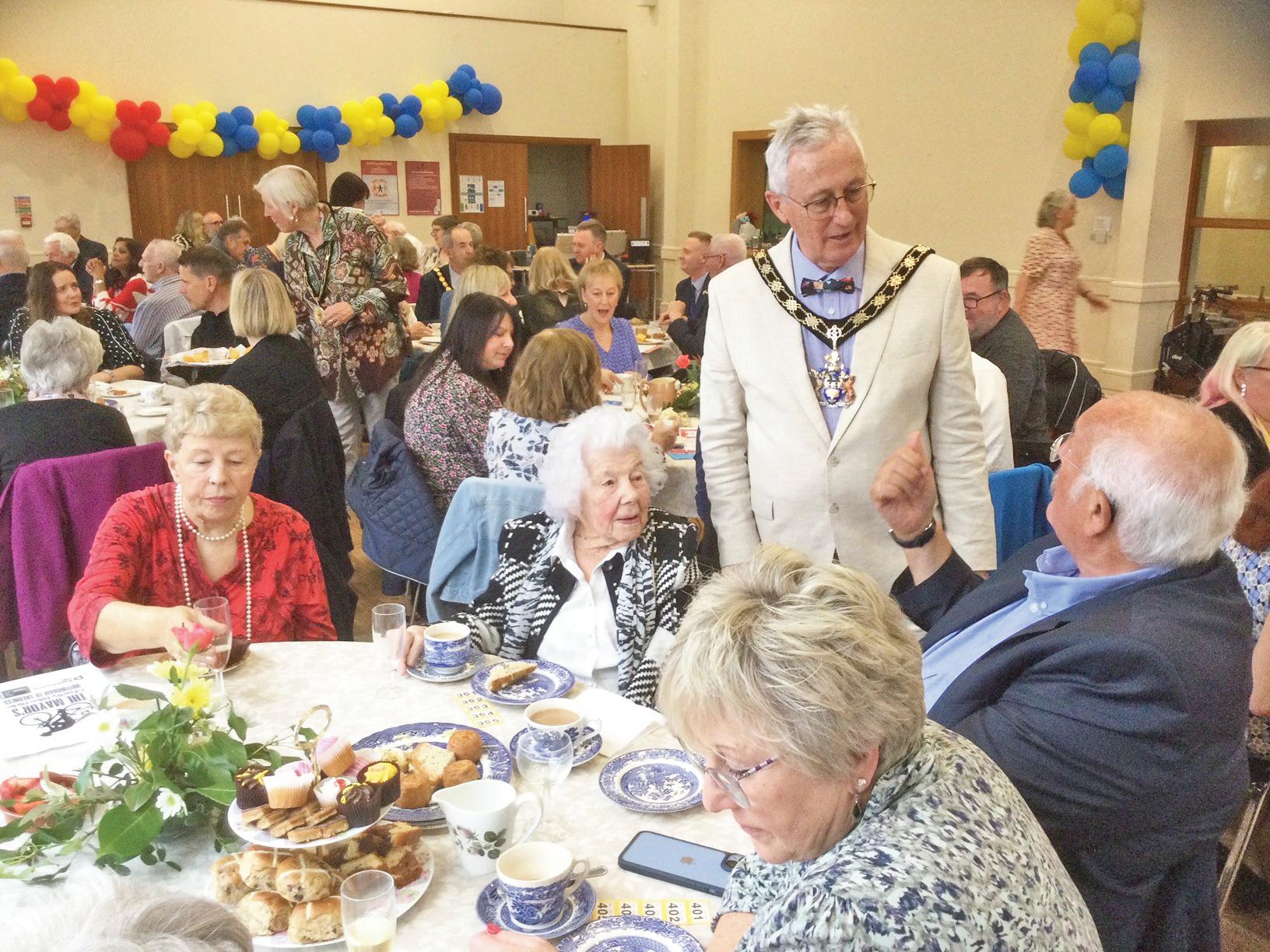
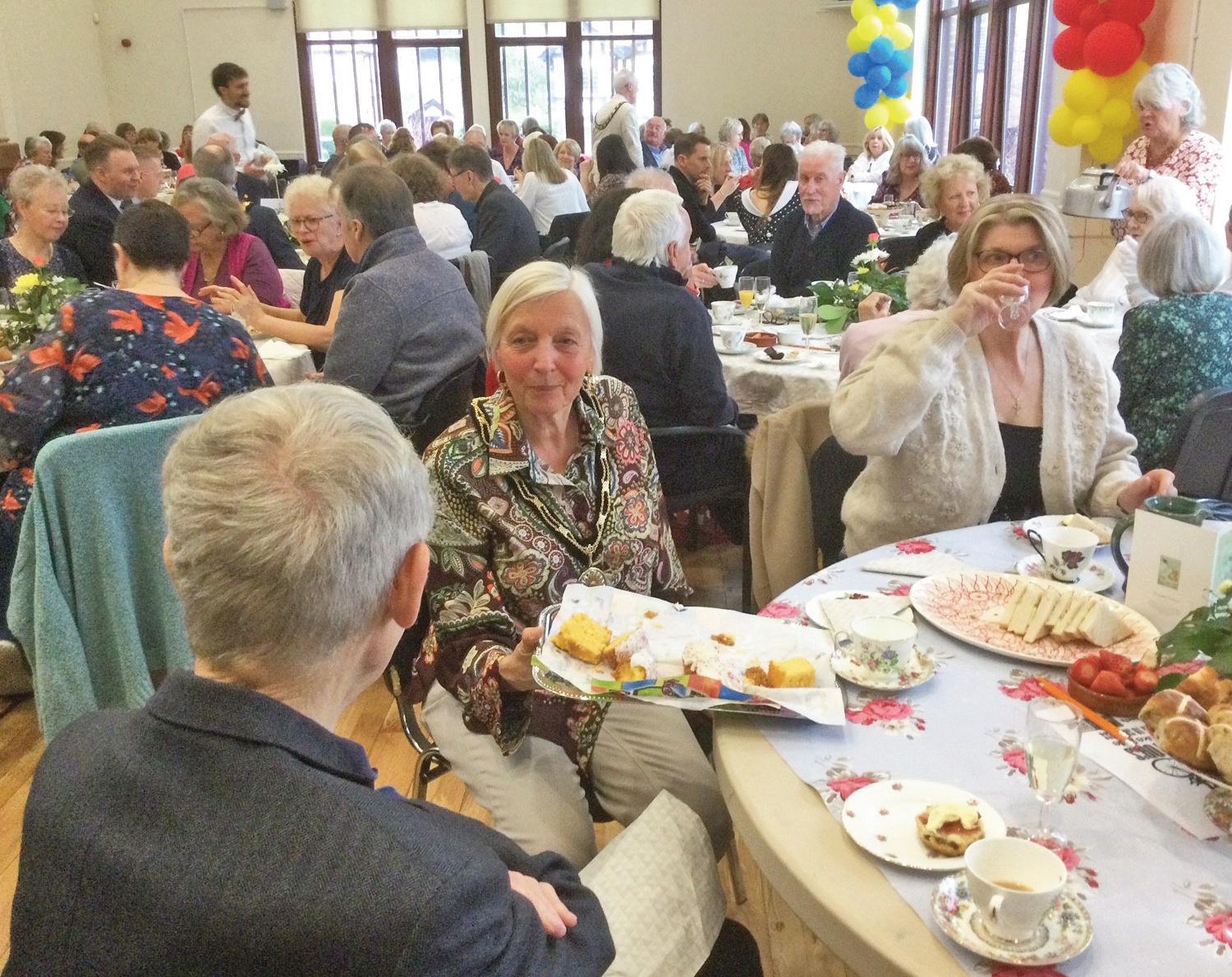
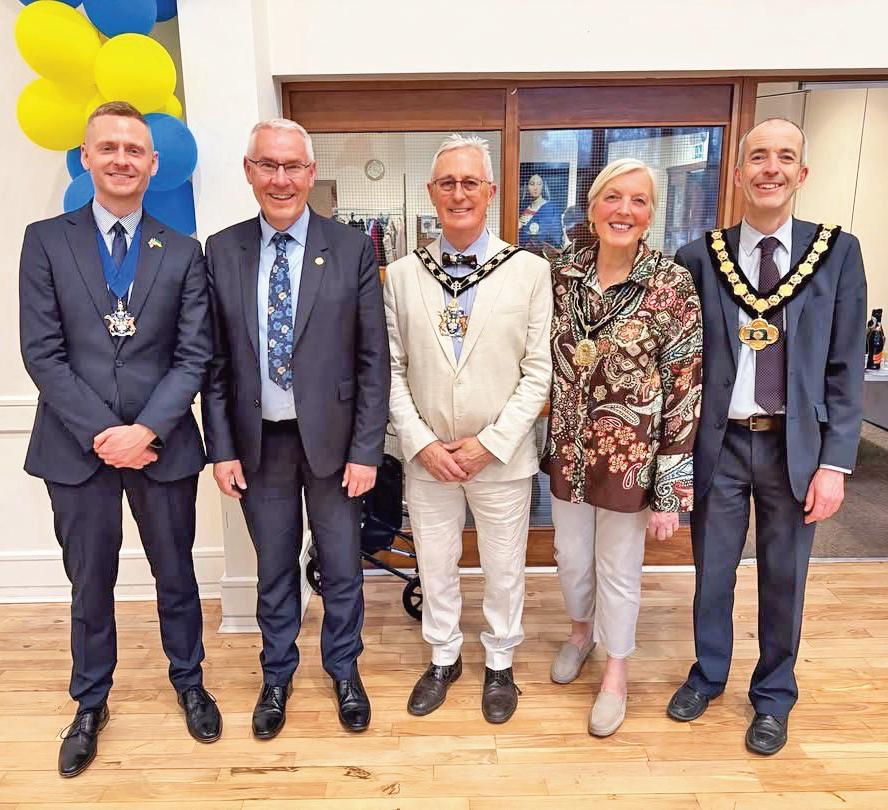
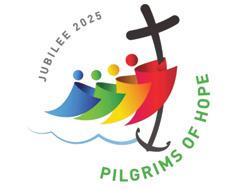

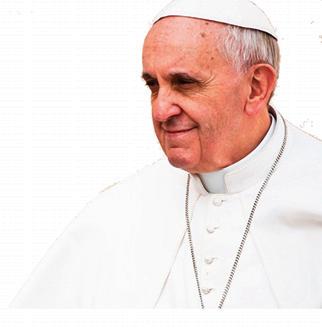

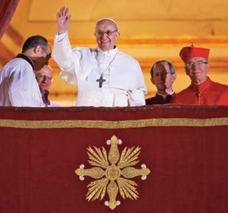
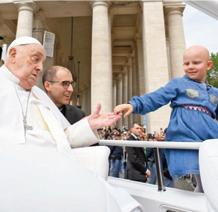
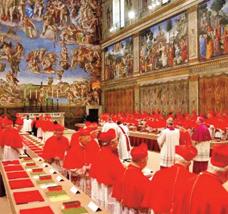
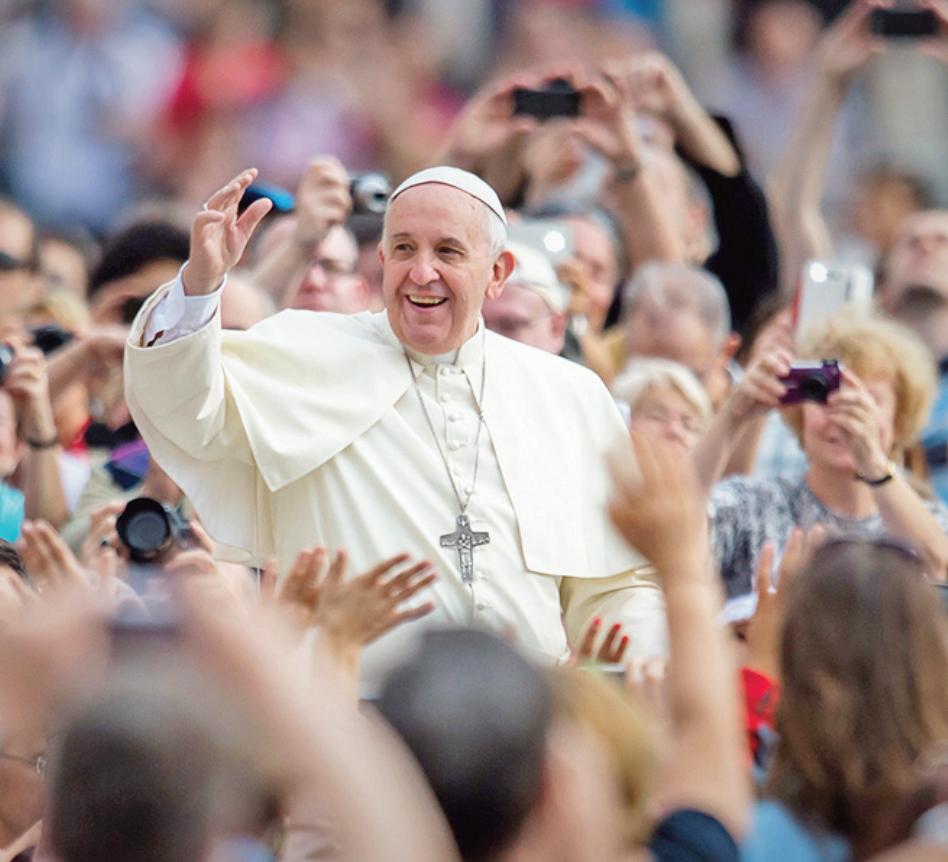


Come along to the garden event with a difference. We don’t have “show gardens.” We don’t have planting colour schemes. We don’t have lots of tidy paths. You may even see some weeds! What do we have, then? We have real, interesting gardens, owned by ordinary people who are longing to welcome you in, give you a cup of tea and a cake, and share their garden. What could be more enjoyable than a Sunday in a lovely market town, relaxing and chatting in the fresh air, making new friends and helping a great cause?
We’ve been running this enjoyable and popular event for several years now, raising funds to help the Parish build a hall next to our historic church, St John’s, in the centre of town. The church is small and there’s nowhere for parishioners to meet, not even to have a cup of tea! Equally
important, there’s much poverty around the church, and we plan to use our Hall to provide free Friendship Meals. Our aim is to serve the community and to bring God’s help and hope in everything we do. We’re Pilgrims of Hope!
This year our Open Gardens will be different, because the parish and community hall is now taking shape “before your very eyes!” The church garden won’t be open because although we still have a small peaceful memorial garden, the rest of the garden is a building site. However, we have at least seven other residential gardens for you to visit, and only £5 gets you into all of them - large, small, very quirky, fairly new and well established. A local nursery is donating plants for sale, and who knows what else will turn up? Last year, at the last minute, I

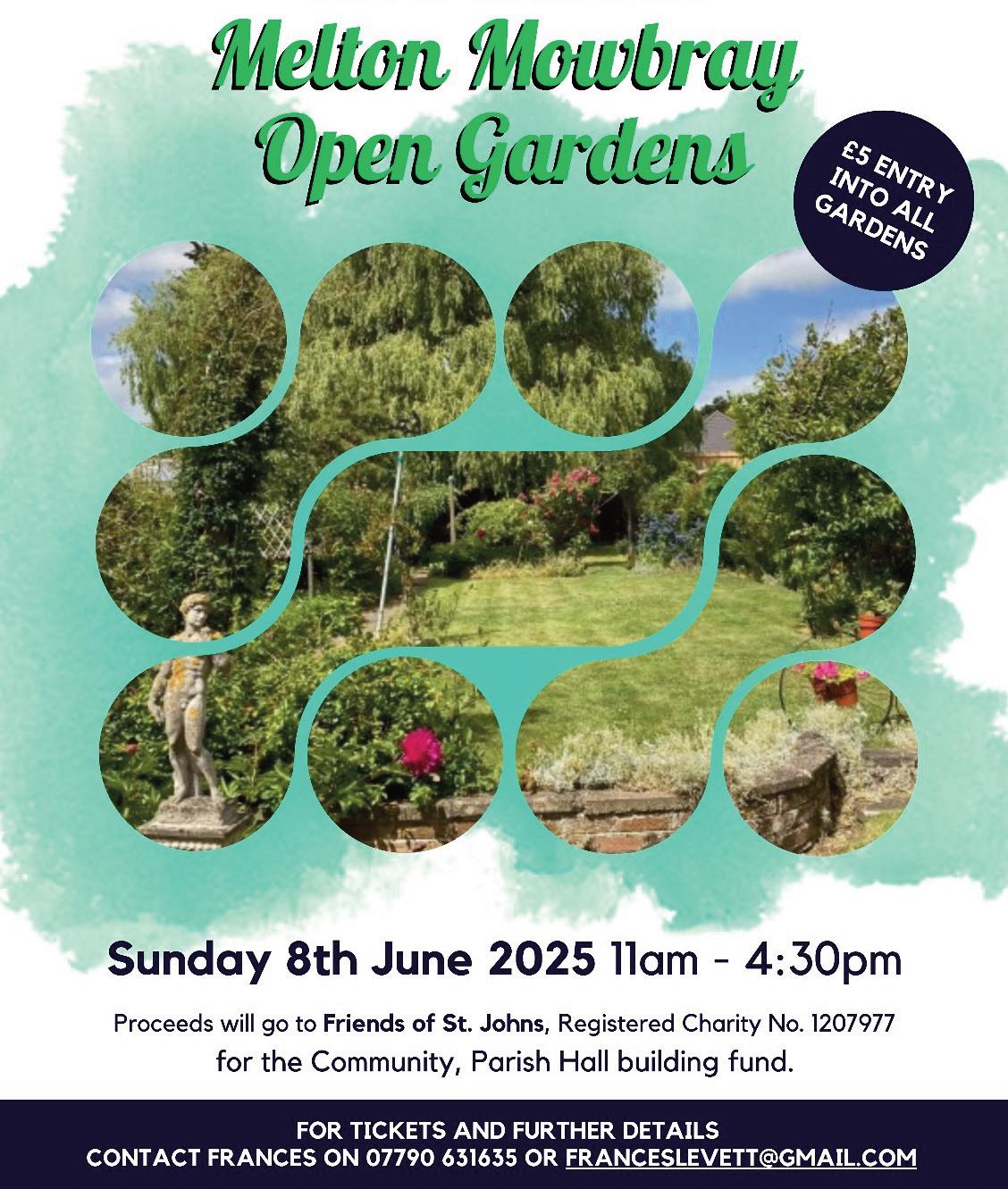
was given 80 large ceramic plant pots and an electric scarifier! We always try to have a little bit of bric for brac for sale as well. Kids love it and so do some of the adults.
You’ll be able to see the site with the partially built hall, and if you would like to see inside the church, please phone or email and we’ll make an arrangement.
For more details scan the QR code below to buy tickets online:

You can also but tickets at any garden on the day. For a list, map and tickets contact Frances on 07790 631635 or franceslevett@gmail.com
I’ll have the kettle on and hope to see you there!

Loving God, today, we grieve for our beloved Pope Francis. We know you join us in our grief, that you too weep at the death of your dear friend and companion as Jesus did at the tomb of Lazarus.
Welcome our beloved Pope Francis into your waiting arms. Envelope him in your eternal love. And comfort us in our mourning as we strive to continue to follow his Gospel example to encounter Christ in all people and in all places.
We thank your for the gift of Pope Francis. Through his life and teaching, you showed us how to love and serve one another, how to hear the cries of the poor and the cries of the earth and respond in compassionate love.
Pope Francis, pray for us. Mary, Mother of Sorrows, comfort us. Amen.

By Fr Jeremy Corley
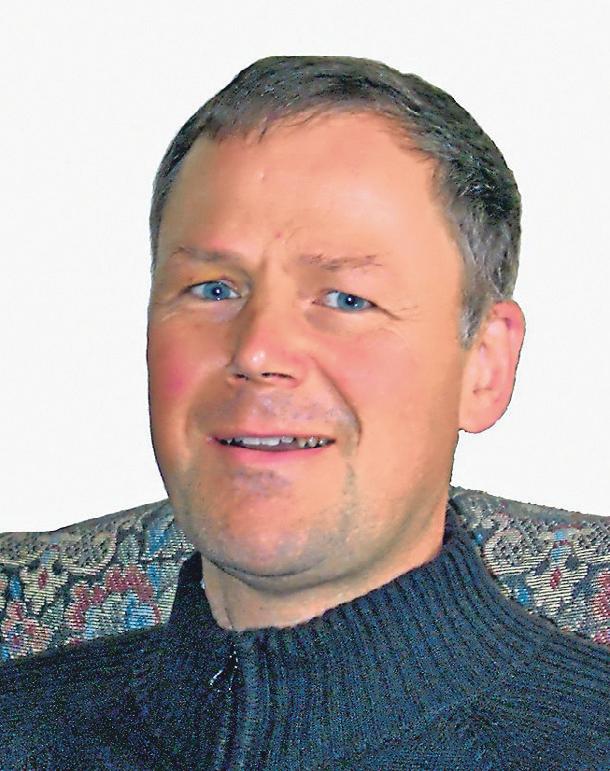
We live in an age of space travel. Astronauts can be launched into space and even spend several months on the International Space Station. Billionaires can book a ticket for a flight into space for a few minutes. Unmanned space probes are exploring ever further across the solar system. There are dreams of sending a manned spacecraft to land on Mars.
Humans have always been fascinated by space – the vast expanse above us in the skies, with the moon and stars. Although modern scientists have sent probes to explore the planets and galaxies nearest to earth, there are distant constellations and supernovas that are far beyond human exploration at the moment.

For the ancient pagans, the heavens were the abode of the gods. For the Jews of biblical times, heaven was the dwelling place of God. But we do not have to understand this in a geographical sense. God is vast and limitless, like space. God is above us and around us, like space. God is almighty and beyond our control, like the forces from space.
Near the end of May we celebrate Ascension Thursday (29th May), when Jesus bids farewell to his disciples. The Acts of the Apostles portrays Jesus ascending into heaven, until the cloud of God’s presence hides him from their sight. But we do not need to understand it geographically as a case of space travel –how many miles did Jesus go upwards from the earth? Instead, this is the final appearance of Jesus after his resurrection. As he bids them farewell in Luke’s gospel
account, he blesses them and tells them to wait prayerfully for the coming of the Holy Spirit.
He makes them a wonderful promise in the gospel: in a short while they will be clothed with power from on high. What they would be unable to do by human power, the Holy Spirit would enable them to do. They would be given the power to live like Jesus and spread his love and forgiveness to those around them. They would receive the strength to endure in times of opposition and hardship. And sometimes they would be given the power to heal the sick.
The first apostles would be his witnesses in Jerusalem, and then close by in Judea and Samaria. Thereafter his followers would spread the Christian message across the Mediterranean – and the Acts of the
Apostles tells us of the apostle Paul arriving to preach in Rome. In later times, right up till today, the good news of Jesus would be proclaimed all over the world.
We cannot live as Christians without the power of the Holy Spirit, first given to each of us in baptism and confirmation. As we look forward to Pentecost, we pray that the Holy Spirit may continue to inspire us to follow Jesus. May the Holy Spirit help us to live by Christ’s teaching and bear witness to him by our actions towards family and work colleagues and in our community.
Come O Holy Spirit, fill the hearts of your faithful, and enkindle in them the fire of your love!


Every month, you have invited us to pray with you for the challenges of humanity and the mission of the Church, teaching us to learn compassion for others from the heart of Christ. Thank you, Francis, for your life and your witness.



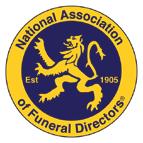
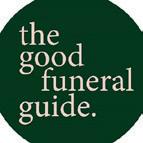
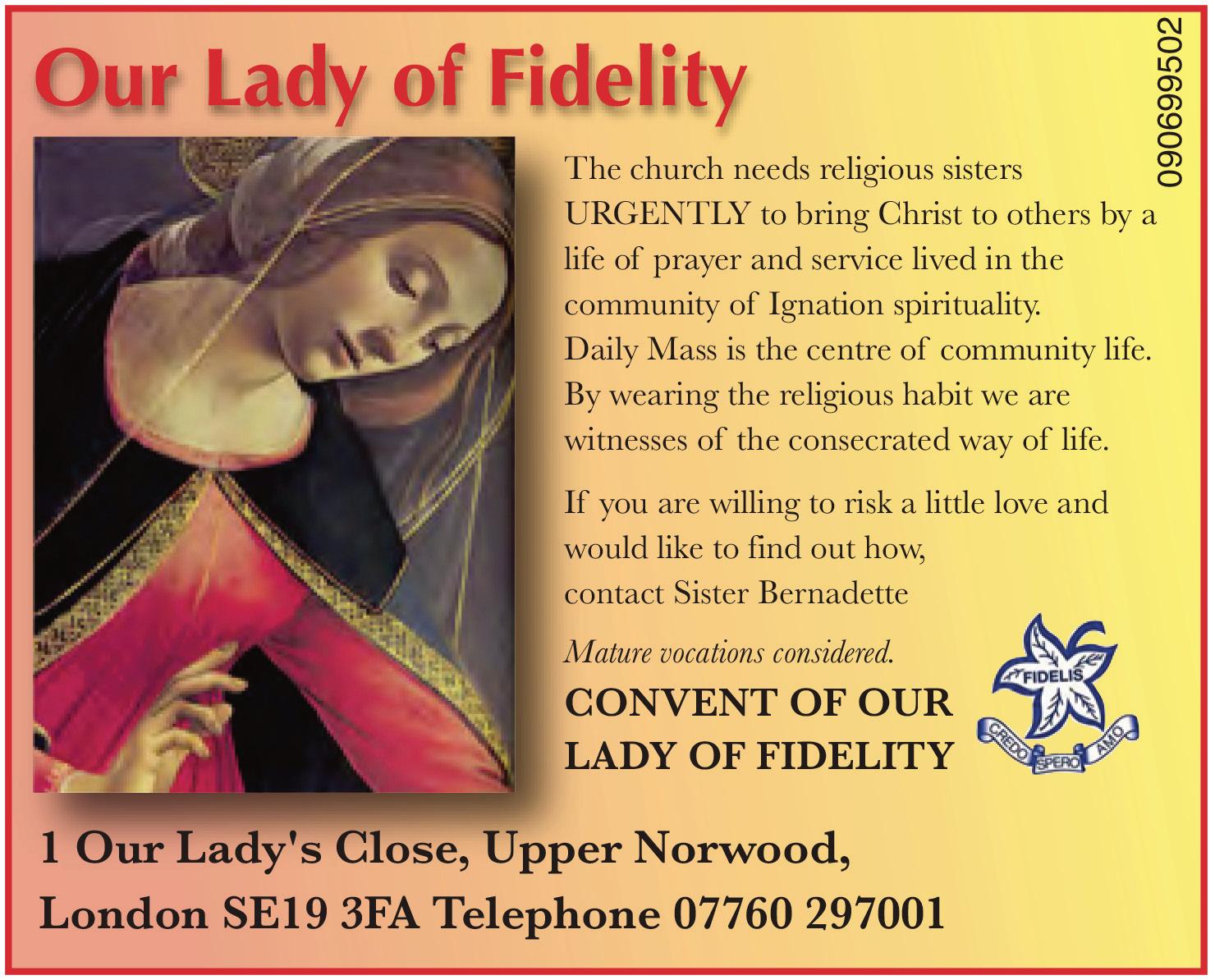

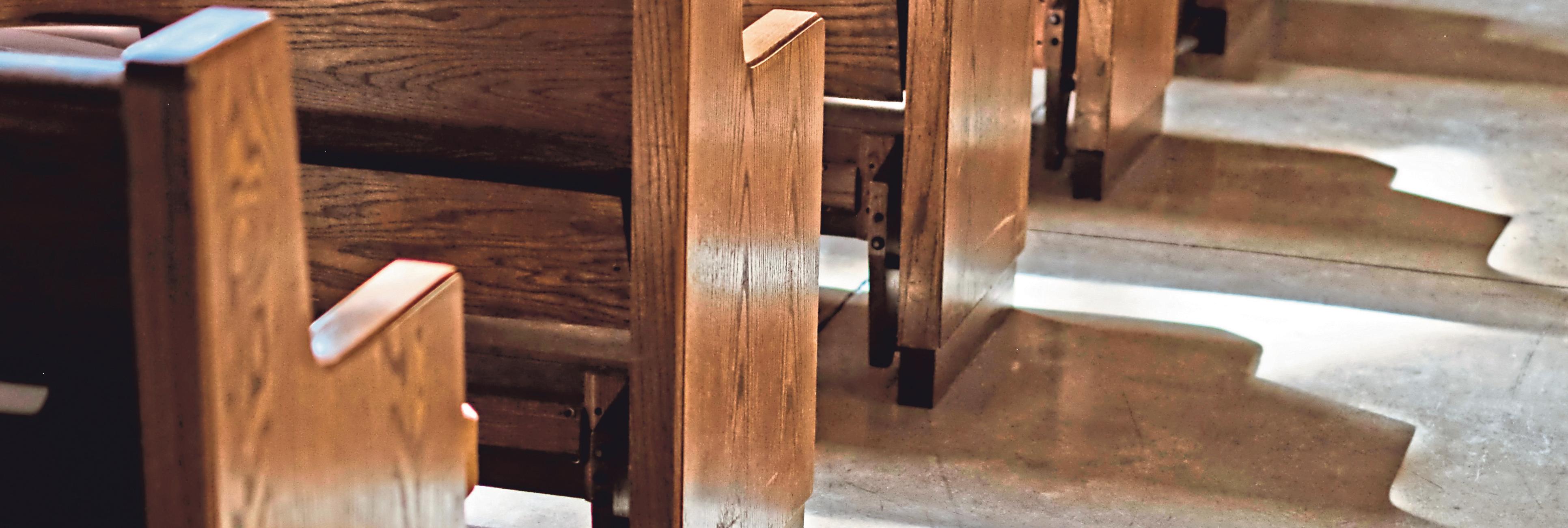

By Dr Jay Kettle-Williams
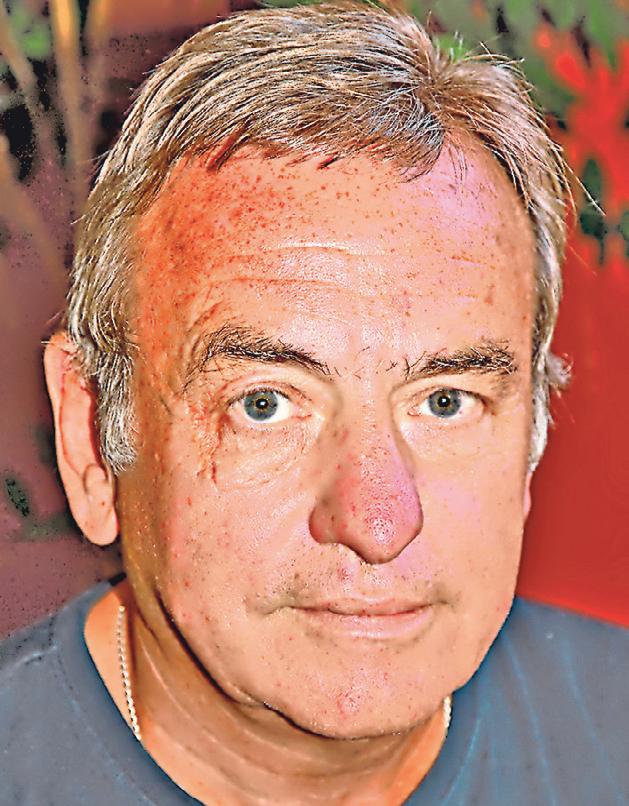
The nature of The Middle East seems to be one of turmoil, even at the time of Christ when ‘nurtured’ under the Pax Romanica.
The people of the region had already been given the 10 Commandments which, dating back to the time of Moses in tne 13th century BC, gave instruction as to what they shouldn’t take from others or deprive others of. Some eleven centuries later, two thousand years ago, Christ then assured the masses of the Beatitudes, the blessings to be bestowed upon those amongst them. He gave the traders their comeuppance, throwing them out of The Temple. Turning to the fig tree, He condemned it for not fulfilling its potential. So Christ would have been seen by some, if not by many or by all, to be violently rocking the proverbial boat, giving a forceful spin to the moral, let alone the political compass, sending it this way and then that, throwing society totally off balance. Little wonder, then, that He is often referred to as the ‘greatest revolutionary of all time’.


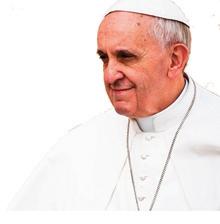
folk tunes and the like. Not one among us sang or could sing.
For me to start singing in Church has always been a sure-fire way of identifying those with a sense of humour. Others have been known to move away or simply get up and leave. Musically I am an absolute Philistine. I leave ‘proper’ singing to my wife and daughter. Yet I have long and dearly enjoyed one particular genre of music, that of the psalms and plainchant such as regularly associated with Pope Gregory I.
Pope Gregory I, perhaps better known as Saint Gregory the Great, was the 64th Bishop of Rome from 3 September 590 until his death on 12 March 604 AD. He is known inter alia for instituting the Gregorian mission, the first recorded large-scale mission from Rome, to bring Christianity to the generally pagan Ango Saxons of that period. Gregory is also known for being a prolific writer.
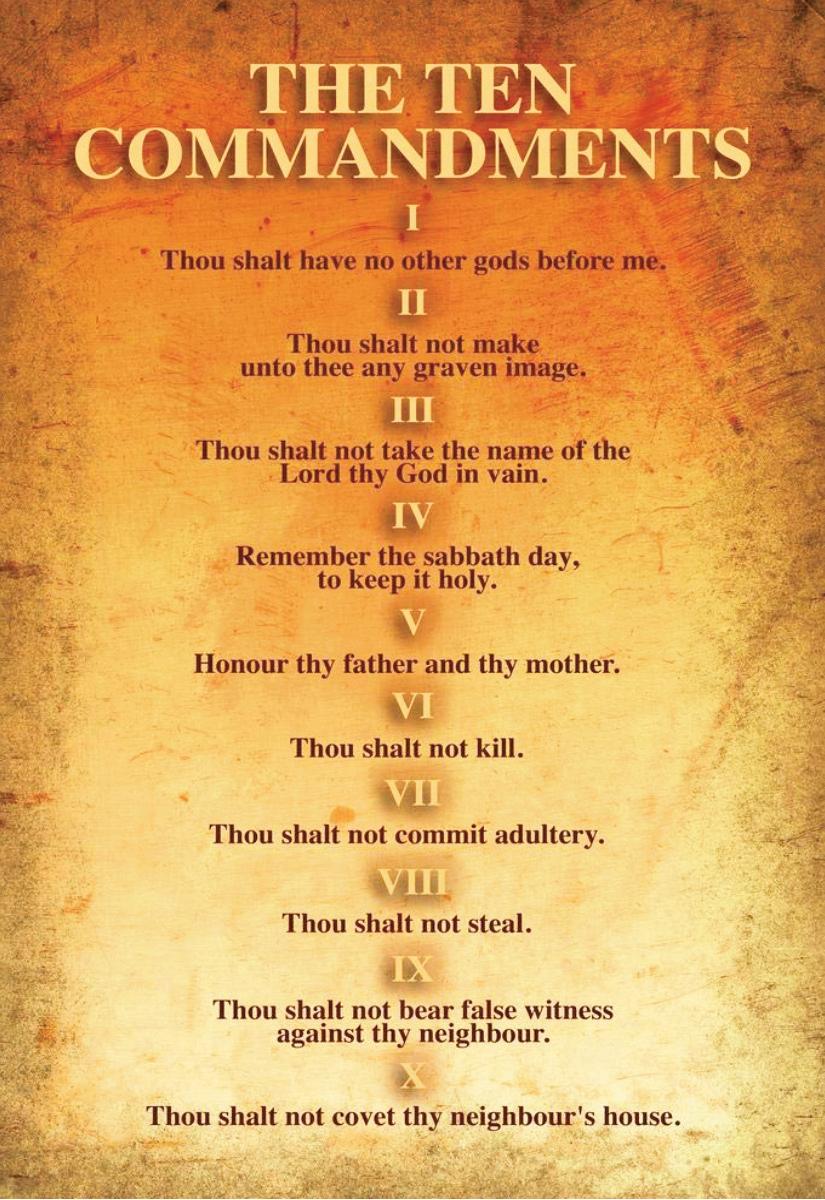
world at the time are open to interpretation as to exactly how they would have sounded.
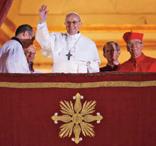

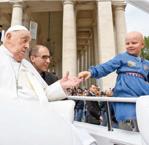
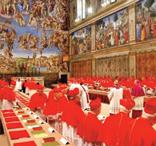



As for an individual’s personal standing politically, rather than that of society at large, I can’t say whether it boils down to nature or to nurture. But inheritance must surely play a part, not to mention environment. When it comes to my own political standing, I suppose it’d best clarified and summed up by and anecdote about my father. Whenever asked where he stood politically, he would simply reply, “On what subject?’ So, like father, like sin, And that makes me wonder what else we inherit, in what image and to what degree.
My father’s musical abilities, albeit limited as they were, failed miserably to pass down the line. I remember he did have a banjo which I never heard him play. I did use it when very young to climb the garden fence. I slipped and put my foot through the head of the banjo. That put an end to that. But I did join a group playing the recorder when at infant school. Being the only boy, I soon put an end to that. I also turned my hand to playing the piano. That was untiI I went to ‘big school’, when we moved house. That put an end to that. But my mother was more musical. She could play the piano: hymns,
The wonders of Gregorian chant are attributed to the central tradition of Western plainchant, a form of monophony, unaccompanied sacred song in Latin (and occasionally in Greek), identified with our Roman Catholic Church. Gregorian chant developed mainly in western and central Europe, not so much among the Eastern Orthodox, during the 9th and 10th centuries, with later additions and redactions. Although popular legend credits Pope Gregory I with either inventing or launching Gregorian chant, scholars believe that it arose from a later Carolingian synthesis of or hybridisation, under the Frankish dynasty, between the Old Roman chant and Gallican chant, i.e. of Gaul, latterly France.
Apart from the PSLAMS, those sacred songs and sacred peoms designed to be sung, composed and passed down from between 1500BC and the post-exilic period (around 500 BC), we know very little about the song and music which would have been known to Jesus.
What fragments of written music that do exist from anywhere in the
But, when it comes to the instruments themselves, we do have a few written descriptions, along with musicians playing all manner of instruments. Those performers could well have been the precursors of the latter-day troubadours who, during the High Middle Ages (11001300), composed and gave public performances of Old Occitan lyric poetry.
Whether in formal gatherings or around the hearth at home, music has always been an intrinsic cultural ingredient of human society. Songs have always been sung and dances have always been performed in time with tythmic music.
I can’t help but wonder to what degree the established, traditional Jewish music, song and dance of today echoes the ‘popular music’ to which those of Jesus’ time would have tapped their feet, clapped their hands, sung along or danced to. Now, there’s a thought.

Dr J L Kettle-Williams is an experienced business communications consultant and wordsmith (tutor, writer, translator).
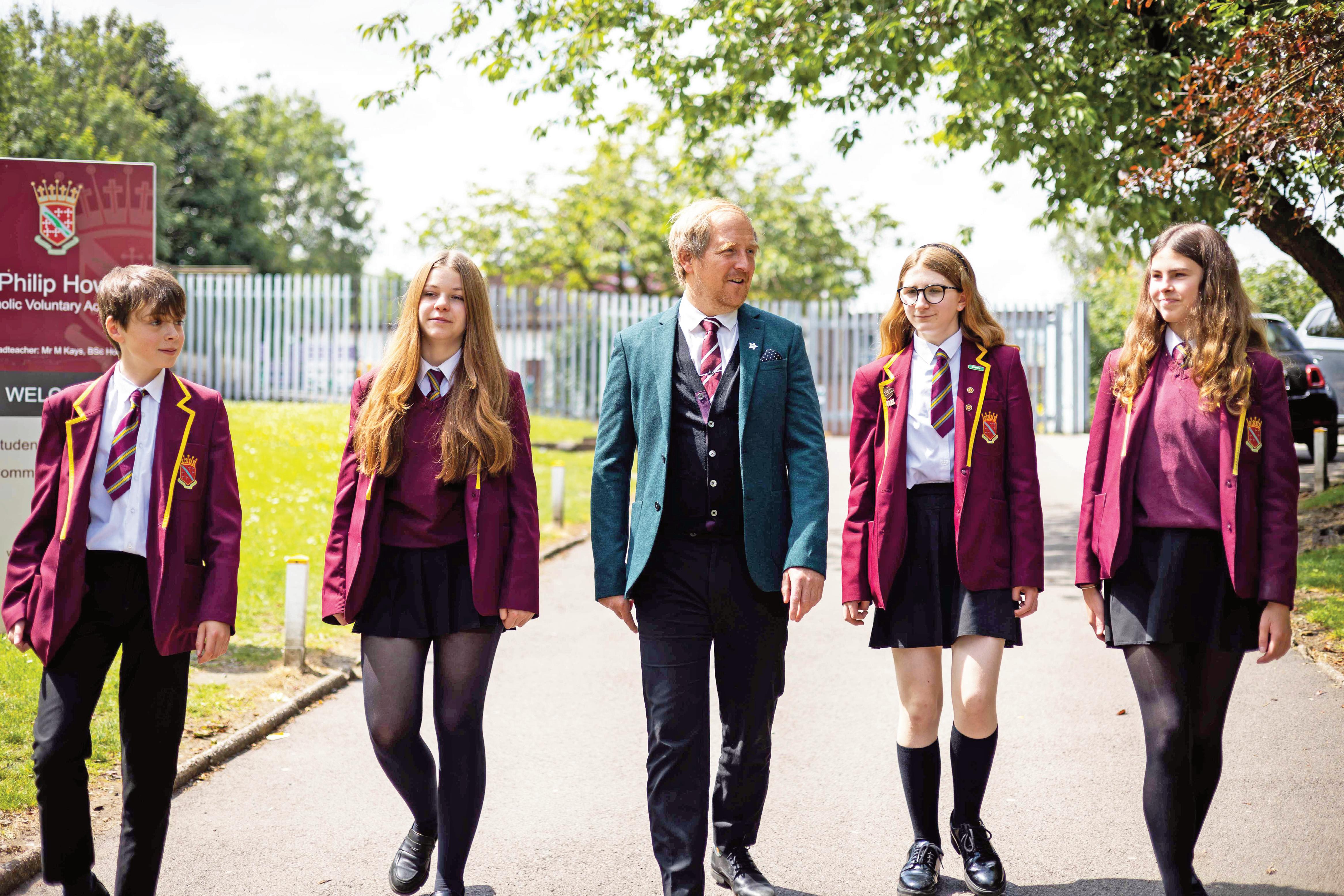
St Philip Howard Catholic Voluntary Academy is a fantastic place to work, learn and grow, according to Catholic schools’ inspectors
The school, in Glossop, underwent its Catholic Schools Inspectorate inspection, which is the national framework for the inspection of Catholic schools, over two days in March 2025.
The overall quality of Catholic education provided by the school was graded Good while Catholic life and mission was graded Outstanding and Religious Education and Collective Worship were both graded Good.
Inspectors said: “Students enthusiastically support the school, embodying the mission at St Philip Howard, summarised as ‘#TeamSPH – Together on the Journey’. Students describe an inclusive community, where they are accepted and can be themselves.”
Students express a strong understanding of the importance of faith, and the respect which must be accorded to those of other faiths and none. With staff, they contribute to the mission statement which describes journeying together as a united Catholic family, the report said.
Various fundraising activities at the school were highlighted in the report and inspectors said that students articulate an imperative to serve others ‘locally, nationally and globally’ and list many examples.
The report said that there is a commitment to pastoral care at St Philip Howard which addresses individual needs as a matter of course. The staff survey records a typical
response: ‘SPH is more than a school, it is a community and a family.’
Inspectors said that students are provided with lots of opportunities for spiritual and personal growth.
They said: “SPH is a fantastic place to work, learn and grow. The school provides a nurturing and inclusive environment where faith is not only taught but lived out in everyday interactions.”
Behaviour was praised in the report with inspectors saying: “Strong relationships contribute to good behaviour for learning in
most lessons, and students, particularly in Year 10, readily concentrate on their work and complete tasks independently.”
Inspectors said that students are very proud of their impressive books, most of which showed frequent self-assessment and improvement.
In Religious Education, the report said that staff have strong subject knowledge, readily engaging with student questions and enhancing lessons which were already well planned and sequenced. This enhances students’ moral and spiritual development.









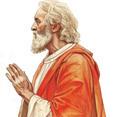




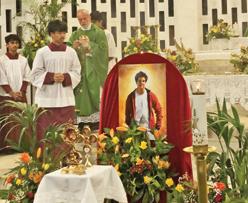










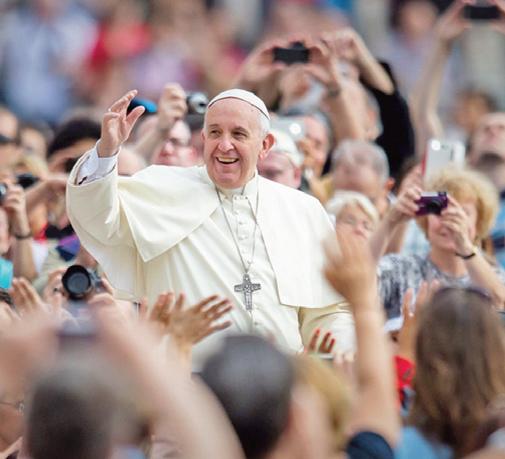



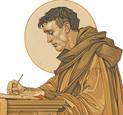




On Thursday 3rd April, St Mary’s Church Derby hosted the Jubilee Station Mass for the Derby Deanery.
The community came together for a wonderful celebration with Bishop Patrick and clergy from across the area. All the local Catholic schools sent representatives from their Chaplaincy Teams. The Lay School Chaplains had ensured the pupils came in their school uniform and brought their school or Jubilee banners to mark the specialness of the occasion. Over a third of those present were under 18, giving great hope for the future of the Church.
Ecumenical leaders of other Christian traditions were guests of honour - Dean Peter Robinson from Derby Cathedral; Rev’d Andy Fyall, Chair of the Nottingham and Derby Methodist District; Rev’d Geoffrey Clarke, Moderator of the URC East Midlands Synod; and Ian Pickering, Methodist DEO for Derby and Nottingham.
There was an impressive procession around the Church at the beginning and end of Mass that included all the youngsters, altar servers, ecumenical clergy, Deanery clergy, Fr Simon Gillespie and, of course, Bishop Patrick.
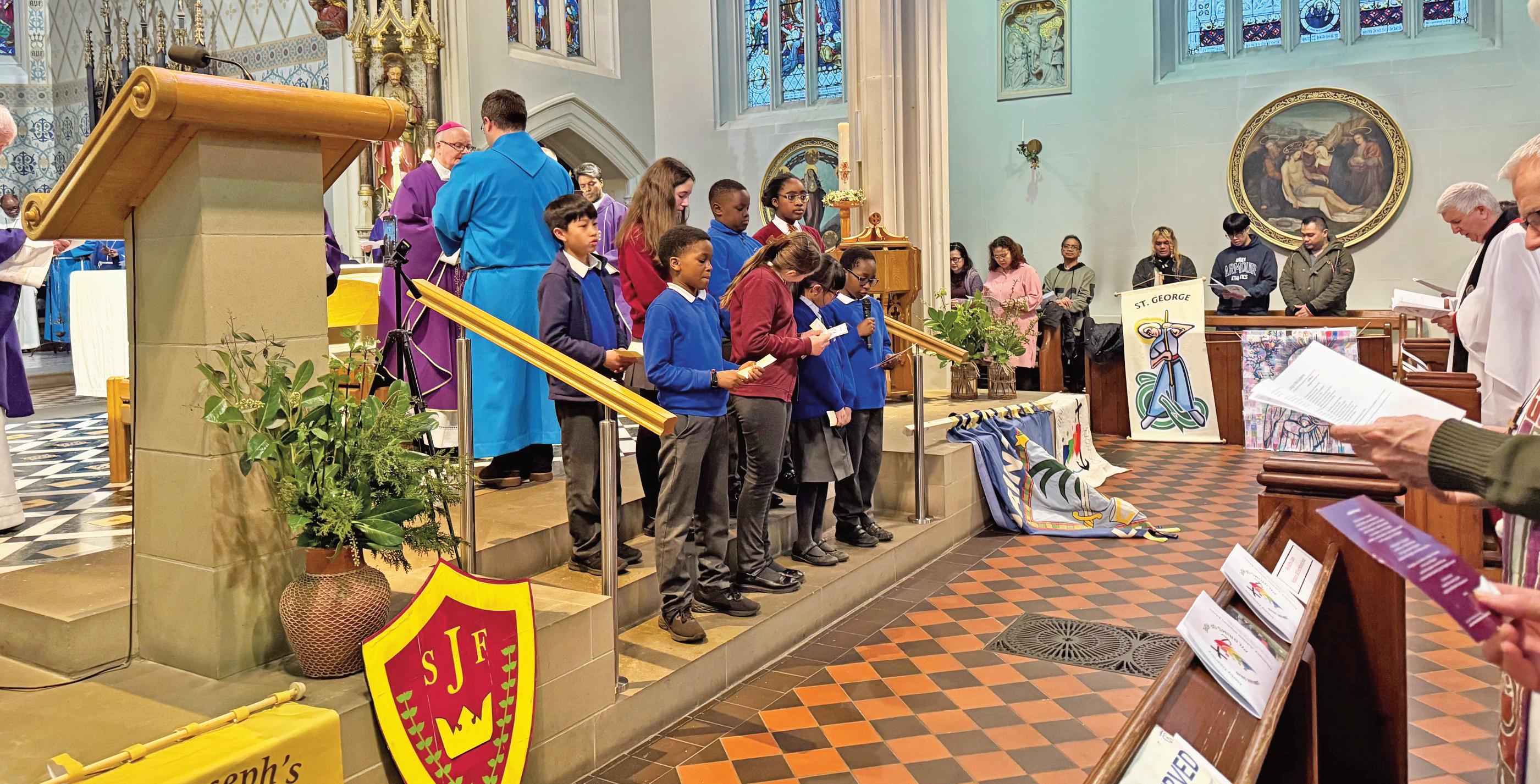
The homily was inspiring and encouraged us to see ourselves not just as pilgrims of hope but Ambassador of hope. A sense of joy and enthusiasm could be clearly felt by those present.
The evening ended with refreshments in the Parish Hall.

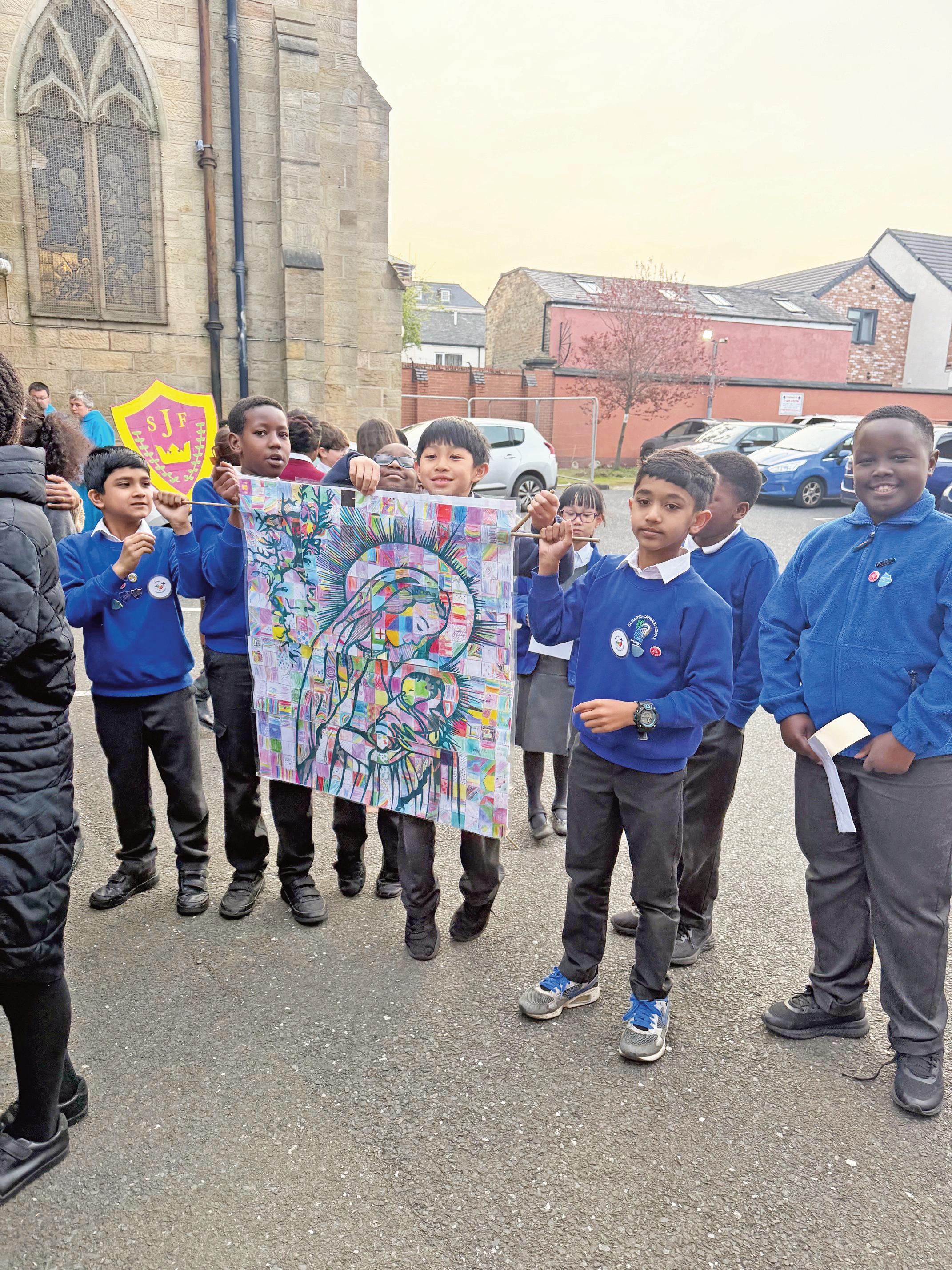
"A sense of humour ... is a human attribute,
but it is the closest to God’s grace."
Known for his sense of fun, Pope Francis wrote an essay for the New York Times on the importance of fostering a sense of humour, of quelling narcissism through “appropriate doses of self-irony,” and of avoiding “wallowing in melancholy at all costs.”
“The Gospel, which urges us to become like little children for our own salvation (Matthew 18:3), reminds us to regain their ability to smile,” Pope Francis wrote in an essay adapted from his new book, “Hope: The Autobiography,” which was published earlier this year.
The pontiff called the many children he meets, as well as the elderly, “examples of spontaneity, of humanity.”
“They remind us that those who give up their own humanity give up everything, and that when it becomes hard to cry seriously or to laugh passionately, then we really are on the downhill slope. We become anesthetised, and anesthetised adults do nothing good for themselves, nor for society, nor for the Church,” he wrote.
“Irony is a medicine, not only to lift and brighten others but also ourselves, because self-mockery is a powerful instrument in overcoming the temptation toward narcissism,” the pope continued.
“Narcissists are continually looking into the mirror, painting themselves, gazing at themselves, but the best advice in front of a mirror is to laugh at ourselves. It is good for us. It will prove the truth of that old proverb that says that there are only two kinds of perfect people: the dead and those yet to be born.”
Pope Francis has spoken about humour several times throughout his papacy; in June of this year, he hosted and entertained a group of over 100 comics, stand-up comedians, and humourists in the largest — and possibly only — gathering of comedians in the Vatican since Pope Pius V eliminated the role of the papal jester in the 1500s.
During a recent visit with French President Emmanuel Macron in Corsica, Pope Francis recommended that Macron read his apostolic exhortation Gaudete et Exultate, drawing attention to a passage referencing St. Thomas More’s prayer for a sense of humour.
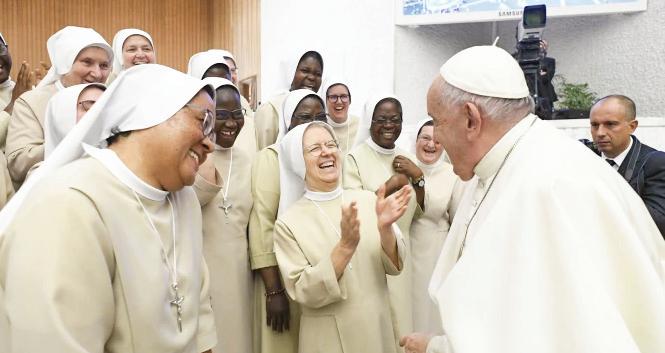
“Lord, give me a sense of humour. Grant me the grace to understand a joke, to discover in life a bit of joy, and to be able to share it with others,” reads the prayer, which Pope Francis has previously described as “very beautiful” and recites daily.
The pope in his essay offered examples of good humour shown by his fellow popes St. John XXIII and St. John Paul II.
St. John XXIII, for example, was said to have showcased his self-deprecating wit when he joked that he often resolved to speak with the pope about serious problems before remembering “that the pope is me.”
Relaying an anecdote about St. John Paul II’s playful resistance to rigid expectations of clerical conduct, Francis wrote that the saint was once, while still a cardinal, rebuked for enjoying many outdoor sporting activities, whereby John Paul responded that “these are activities practiced by at least 50% of cardinals.” In Poland at the time, there were only two cardinals.
“Sometimes we (popes) unfortunately come across as bitter, sad priests who are more authoritarian than authoritative, more like old bachelors than wedded to the Church, more like officials than pastors, more supercilious than joyful, and this, too, is certainly not good,” the pope wrote.
“But generally, we priests tend to enjoy humour and even have a fair stock of jokes and amusing stories, which we are often quite good at telling, as well as being the object of them.”
The pope in his essay also told a joke involving himself, printed here in its entirety: As soon as he arrives at the airport in New York for his apostolic journey in the United States, Pope Francis finds an enormous limousine waiting for him. He is rather embarrassed by that magnificent splendor, but then thinks that it has been ages since he last drove, and never a vehicle of that kind, and he thinks to himself: OK, when will I get another chance? He looks at the limousine and says to the driver, “You couldn’t let me try it out, could you?” “Look, I’m really sorry, Your Holiness,” replies the driver, “but I really can’t, you know, there are rules and regulations.”
But you know what they say, how the pope is when he gets something into his head … in short, he insists and insists, until the driver gives in. So Pope Francis gets behind the steering wheel, on one of those enormous highways, and he begins to enjoy it, presses down on the accelerator, going 50 miles per hour, 80, 120 … until he hears a siren, and a police car pulls up beside him and stops him. A young policeman comes
Credit: Vatican Media
up to the darkened window. The pope rather nervously lowers it and the policeman turns white. “Excuse me a moment,” he says, and goes back to his vehicle to call headquarters. “Boss, I think I have a problem.”
“What problem?” asks the chief.
“Well, I’ve stopped a car for speeding, but there’s a guy in there who’s really important.” “How important? Is he the mayor?”
“No, no, boss … more than the mayor.”
“And more than the mayor, who is there? The governor?”
“No, no, more. …”
“But he can’t be the president?”
“More, I reckon. …”
“And who can be more important than the president?”
“Look, boss, I don’t know exactly who he is, all I can tell you is that it’s the pope who is driving him!”
By Jonah McKeown catholicnewsagency.com
The Sanctuary Foundation have released a video to commemorate the 80th anniversary of the death of Dietrich Bonhoeffer, just weeks before the end of the Second World War.
Bonhoeffer was deeply concerned about those suffering because of war. He not only helped those who were fleeing, but also challenged the Nazi regime about its xenophobic stance against immigrants living in their country. Six million Jews and other minorities and critics were executed in the war - Dietrich Bonhoeffer was one of them.
Tom Hanks, Hollywood legend, features in this video narrating a poem Bonhoeffer wrote shortly before his death. Clearly suffering from anxiety and self-doubt, it is a poignant reflection on identity, humanity and faith.
Hear Tom Hanks reading ‘Who Am I’ scan the QR right

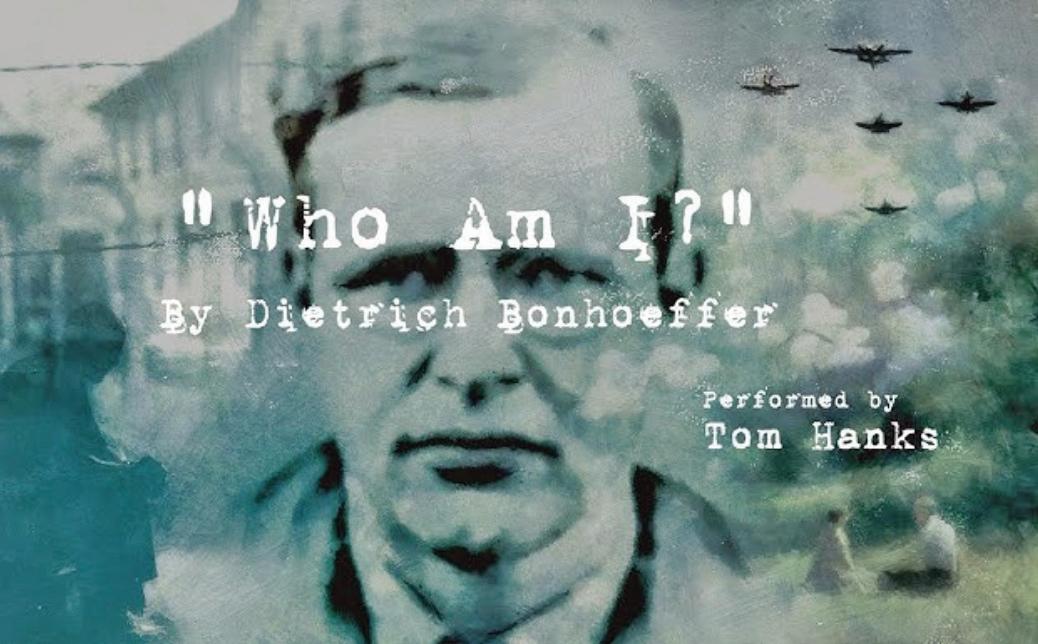

You can use both sets of clues to solve the puzzle: the solutions are the same.
CRYPTIC Across
1 Enemy of Gideon's defeated during the witching hour, said one (9)
6 Musical about a High Priest (7)
7 Riddle to penetrate? (5)
9 Change in a little while going back to protect the testament (5)
10 Fielder's body parts used to take wickets in the end (3,4)
11 Foot part's essential to dancing, they say (6)
13 Grand aura about directions for the Holy Roman Emperor (6) 16 Hymn book each sailor kept (7)
18 One has a habit of getting into minicab bother (5)
20 Harsh being back at sea (5)
21 Bigbrewersarenuts,ridiculous(3-4)
22 Tyre here company backs after one phone order (9)
CRYPTIC Down
1 Recommendation when weather's bad in French wine area? (5)
2 Poles follow east Maine river banks to estate (7)
3 Saint Poles back from 2, and the Spanish, see in the morning (6)
4 One's no good in charge at first, but is very sweet (5)
5 Christian Roman's spreading mostly rubbish between Europe and America (7)
6 Paul's fellow soldier damaged pup's chair (9)
8 It runs in Iraq on Brussels tariffs top two phones supported (9)
12 Disturbance with fish supper only half wolfed down (5-2)
14 Spooks wreck a comeback, totally, for ancient language (7)
15 Frenchman's to the fore in Brexit – real European traditionalist on nationality (6)
17 'Beat retreat' code-word (5)
19 Gunners in the ascendant during support for Hebridean island (5)
QUICK Across
1 One of a tribe from whom Moses took a wife (9)
6 High Priest who opposed the Maccabees (7)
7 Soak;suffuse(5)
9 Eurofractions?(5)
10 Close fielding position in cricket (3,4)
11 Arch area of the foot (6)
13 The ------'s War: alternative, now dated, name for World War I (6) 16 Book of hymns or poems associated with the Old Testament (7)
18 Archimandrite;prelate(5)
20 Demanding;forbidding(5)

5 Roman Christian who sent greetings to Timothy via Paul... (7)
6 ...and Christian at Colossae cited by Paul (9)
8 Western river boundary of Mesopotamia (9)
12 Organize a new restructure(5-2)
14 Language probably spoken by Christ (7)
15 French, previously Armorican (6)
21 Large vats for steeping and serving beverages (3-4)
22 Ancient Levant maritime country with ports at Tyre and Sidon (9)
QUICK Down
1 Town noted for its Chardonnay and Pinot Noir/Gamay Burgundies (5)
2 Manorhouse;estate(7)
3 Abbot of Bec who became Archbishop of Canterbury in 1093 (6)
4 Cupcake topper (5)
17 Staccato, energetic, South American dance (5)
19 Outer Hebridean island home of Dad's Army's Private Frazer (5)
SOLUTION